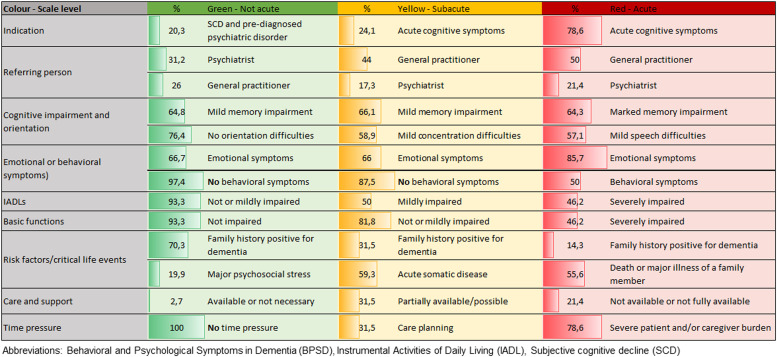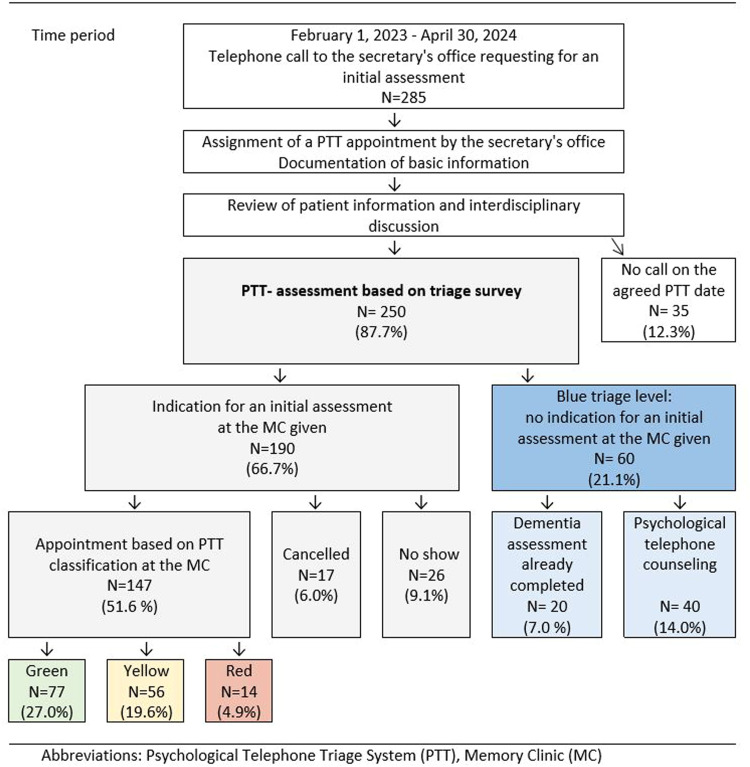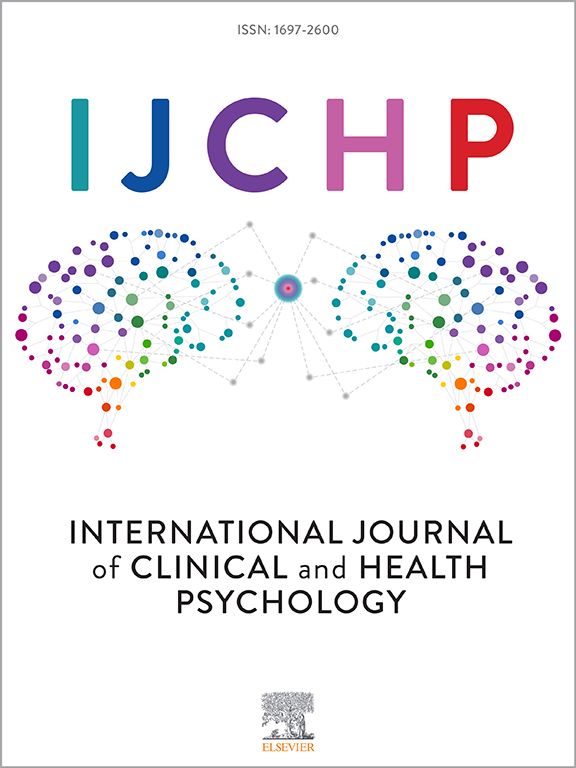Psychological telephone triage system for outpatient memory clinics - a way for adaptation to new challenges of increasing dementia prevalence and new treatment options?
IF 4.4
1区 心理学
Q1 PSYCHOLOGY, CLINICAL
International Journal of Clinical and Health Psychology
Pub Date : 2024-10-01
DOI:10.1016/j.ijchp.2024.100530
引用次数: 0
Abstract
Background
The increasing prevalence of dementia and new therapeutic developments for Alzheimer's disease (AD) have created an urgent need for rapid and cost-effective methods to diagnose those affected in the early stages of the disease. Unlike emergency departments, memory clinics lack triage systems, e.g. the Manchester Triage System.
Method
This retrospective, observational study evaluated the effects of a psychological telephone triage (PTT) system for people requesting an initial assessment at a specialized outpatient memory clinic over a 15-months period in terms of waiting times, staff resources, and as a screening method for cognitive disorders. The PTT consisted of an interdisciplinary pre-screening of available preliminary patient information prior to telephone contact, a semi-structured interview of approximately 30 min with a clinical psychologist, and telephone psychological counseling if there was no indication for an on-site dementia assessment. Based on the PTT interview, patients were triaged using a 4-level priority system (red = acute, yellow = subacute, green = not acute, blue = no indication/counseling). The results were compared with data from the two years prior to the introduction of PTT.
Results
The data of 612 people (327 before and 285 after the introduction of PTT) who called the secretary's office between January 1, 2021 and April 30, 2024 and requested an initial assessment were analyzed. Of the original sample who called after the introduction of PTT, 66.7% had an indication for an on-site visit and were invited to do so. This was accepted by 51.6%. A further 14% received psychological telephone counseling, resulting in a 34% reduction in on-site visits. Patients triaged as acute cases had the shortest waiting time and presented with the most severe cognitive and functional symptoms at the on-site visit.
Discussion
Our study shows that PTT is an effective method to identify patients with urgent need for an initial dementia assessment and to provide psychological counseling as an alternative to on-site visits. We expect that this will reduce the number of emergency admissions and thus the burden on caregivers and the healthcare system. This PTT concept can thus help to better manage the increasing need for initial assessments in the context of new therapies for AD and the increasing prevalence of dementia in general.


门诊记忆诊所的心理电话分诊系统——一种适应日益增加的痴呆患病率和新的治疗选择的新挑战的方法?
背景:随着痴呆症患病率的增加和阿尔茨海默病(AD)治疗的新进展,迫切需要快速和具有成本效益的方法来诊断疾病早期阶段的患者。与急诊科不同,记忆诊所缺乏分诊系统,例如曼彻斯特分诊系统。方法:这项回顾性观察性研究评估了心理电话分诊(PTT)系统在15个月的时间里对在一家专门的门诊记忆诊所要求进行初步评估的人的等待时间、工作人员资源和作为认知障碍筛查方法的影响。PTT包括在电话联系之前对可获得的初步患者信息进行跨学科的预筛选,与临床心理学家进行约30分钟的半结构化访谈,如果没有迹象表明需要进行痴呆现场评估,则进行电话心理咨询。根据PTT访谈,使用4级优先级系统对患者进行分类(红色=急性,黄色=亚急性,绿色=非急性,蓝色=无指证/咨询)。结果与引入PTT前两年的数据进行了比较。结果:分析了2021年1月1日至2024年4月30日期间,612人(引入PTT前327人,引入PTT后285人)向秘书办公室提出初步评估要求的数据。在引入PTT后打电话的原始样本中,66.7%的人有现场访问的指示,并被邀请这样做。51.6%的人接受了这一观点。另有14%的人接受了心理电话咨询,从而减少了34%的现场访问。被分类为急性病例的患者候诊时间最短,在现场就诊时表现出最严重的认知和功能症状。讨论:我们的研究表明,PTT是一种有效的方法,可以识别迫切需要进行初步痴呆评估的患者,并提供心理咨询,作为现场就诊的替代方案。我们预计这将减少急诊入院人数,从而减轻护理人员和医疗保健系统的负担。因此,这种PTT概念可以帮助更好地管理在阿尔茨海默病新疗法和痴呆症普遍患病率日益增加的背景下对初始评估的日益增长的需求。
本文章由计算机程序翻译,如有差异,请以英文原文为准。
求助全文
约1分钟内获得全文
求助全文
来源期刊

International Journal of Clinical and Health Psychology
PSYCHOLOGY, CLINICAL-
CiteScore
10.70
自引率
5.70%
发文量
38
审稿时长
33 days
期刊介绍:
The International Journal of Clinical and Health Psychology is dedicated to publishing manuscripts with a strong emphasis on both basic and applied research, encompassing experimental, clinical, and theoretical contributions that advance the fields of Clinical and Health Psychology. With a focus on four core domains—clinical psychology and psychotherapy, psychopathology, health psychology, and clinical neurosciences—the IJCHP seeks to provide a comprehensive platform for scholarly discourse and innovation. The journal accepts Original Articles (empirical studies) and Review Articles. Manuscripts submitted to IJCHP should be original and not previously published or under consideration elsewhere. All signing authors must unanimously agree on the submitted version of the manuscript. By submitting their work, authors agree to transfer their copyrights to the Journal for the duration of the editorial process.
 求助内容:
求助内容: 应助结果提醒方式:
应助结果提醒方式:


